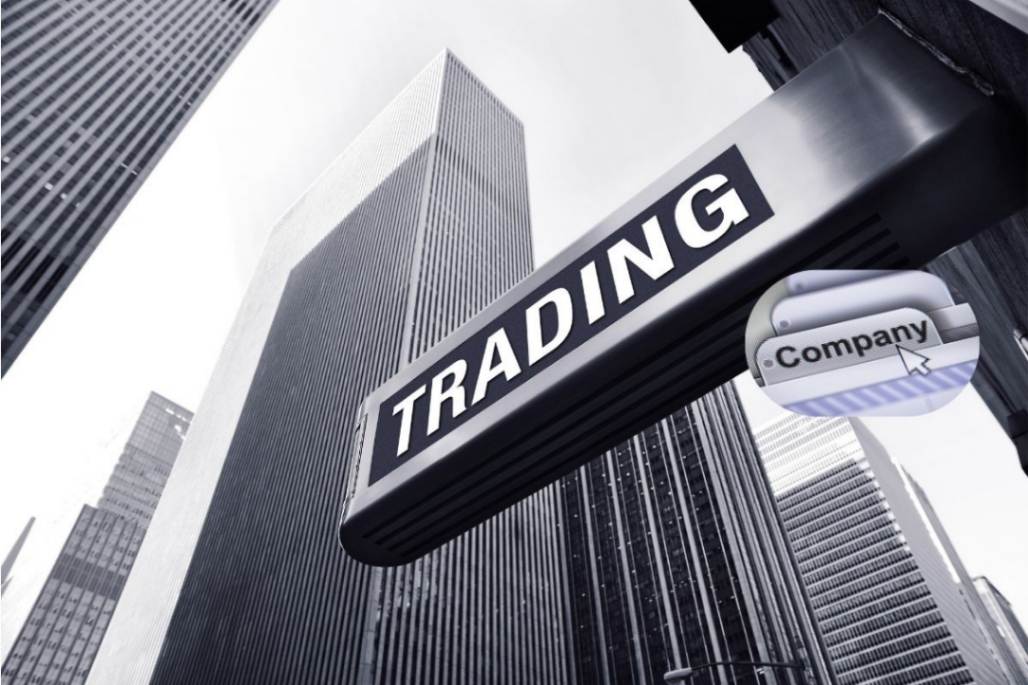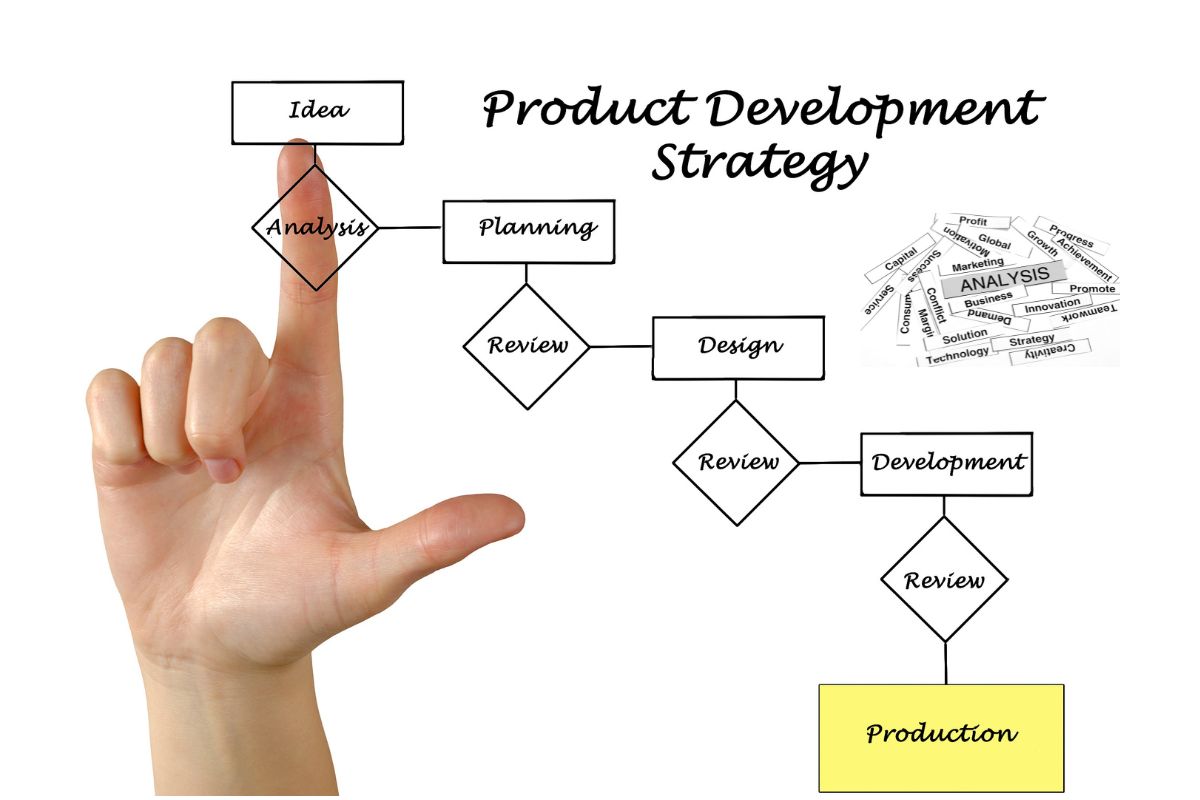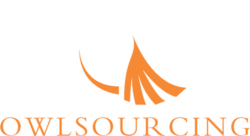Estimated reading time: 12 minutes
In the fast-paced realm of international trade, businesses often seek proficient intermediaries to facilitate their procurement processes. One such vital intermediary is a sourcing agent. This article sheds light on the role of sourcing agents, their responsibilities, and their significance in the global supply chain.
Table of Contents
Toggle1. What Is a Sourcing Agent?

Sourcing agents serve as intermediaries, assisting businesses in finding the right suppliers, negotiating terms, ensuring quality, and optimizing supply chains for global procurement. They act as partners who help manage and enhance businesses while seeking additional resources.
In international trade, sourcing agents research potential suppliers, evaluate credibility, negotiate prices, oversee production, and manage logistics to meet agreed-upon standards. Businesses collaborate with sourcing agents to tap into their expertise, local insights, and knowledge of market trends, regulations, and cultural nuances, making the procurement process more efficient and less risky.
Sourcing agents usually employ one of the following fee structures: a commission based on the order value, a flat fee, or a combination of both. In some cases, specialized services may be charged at an hourly rate. It’s crucial to establish a clear understanding of the fee structure from the outset to ensure transparency and effective cost management.
2. Why Businesses Utilize Sourcing Agents
Businesses choose to partner with sourcing agents for various reasons. One primary motivation is leveraging the agents’ expertise and local insights, as sourcing agents possess in-depth knowledge of market trends, regulations, and cultural nuances. This knowledge expedites processes while minimizing risks.
Especially when a business is in its early stages of development or not yet large in scale, the consideration of operational and procurement costs becomes more critical. Instead of establishing their own overseas company, businesses often find it particularly important to seek out a suitable and reliable partner. Procurement agents can assist in efficiently managing local operations and, from a cost perspective, are a more favorable choice.
3. Work Directly With the Manufacturers

One approach to sourcing goods and materials is to establish a direct relationship with the manufacturing facility. This method creates a direct connection between the buyer and the factory producing the desired products. While it can offer potential cost savings and greater control over production, it demands a deep understanding of manufacturing processes, quality assurance, and supply chain management from the buyer.
It’s the most cost-effective way to purchase, without middlemen to reduce your margins or additional costs from third parties. However, effective communication can be a concern, as many factory salespersons may not be fluent in foreign languages, potentially leading to misunderstandings that need clarification.
Unless you can find a capable factory, it’s worth reconsidering this approach. Moreover, if you’re unfamiliar with the Chinese market or your business is just starting, working directly with the factory may not be advisable.
4. Purchase and Pay a Third-Party Supplier
Purchasing products through a third-party source involves buying from an established distributor or supplier. This method is often preferred when a buyer seeks a simplified procurement process and relies on the expertise of an established market entity. While it can streamline procurement, it may limit customization and negotiation flexibility.
However, third parties are adaptable and can offer various product and supplier options. They typically require upfront payment before starting a specific project.
When considering collaboration with a third party, it’s crucial to assess their capabilities and scale. Larger third-party entities generally have more resources and specialization but come with higher fees, whereas smaller-scale third parties offer greater flexibility in processes and lower costs.
5. Collaborate with a Trading Company

Trading companies serve as intermediaries bridging the gap between manufacturers and buyers. They possess comprehensive knowledge of the industry and market trends, making them a valuable option for businesses seeking guidance.
Collaborating with a trading company provides a balanced approach between customization and convenience, as they can assist in negotiating terms while managing logistics.
A professional trader takes on the responsibility of solving various issues, such as quality concerns and lead times, handling most aspects, and billing for the final product.
They offer comprehensive control throughout the entire process, making it the easiest choice for those willing to pay a higher price or share a portion of their margin, typically around 20-30%.
“China remains an appealing sourcing market.” – Chinadaily Reporting
6. Engage a Sourcing Agent
Sourcing agents (China sourcing agent), also referred to as procurement agents, hold a pivotal role in the realm of procurement. They act as intermediaries connecting buyers and manufacturers, offering a comprehensive array of services ranging from identifying suitable suppliers to overseeing quality control and managing logistics. These agents harness their expertise to navigate the intricacies of international trade, ensuring a seamless procurement process.
A sourcing agent is an entity that facilitates communication with your suppliers. Unlike traders, they do not share your profit margins but instead receive a commission when you make payments to the supplier.
They excel in negotiating and communicating on your behalf, especially when language barriers or other obstacles arise. Essentially, a sourcing agent performs a role akin to that of a trader, handling all aspects on your behalf and going above and beyond by providing services such as managing import/export duties, taxes, tariffs, and adhering to local and international regulations.
Sourcing agents provide significant benefits to small businesses with limited resources. Utilizing the expertise of agents enables small enterprises to tap into a wider supplier network and navigate complex international trade processes more effectively.
7. How to Choose an Effective Sourcing Agent

Choosing the right sourcing agent is crucial, and several key factors should be considered in the selection process:
Effective communication is essential in ensuring your requirements are understood and met. Sourcing agents should be adept at bridging cultural differences and language barriers, both in written and spoken communication. They should be accessible through various communication channels, including email, social media, and video calls.
Look for sourcing agents who exhibit professionalism in their work. This includes having the necessary training, experience, and organizational skills to provide expert guidance. Their expertise should lead to high-quality results in your procurement process.
A reliable sourcing agent can be trusted to consistently meet your expectations and adhere to agreed timelines. They should follow your requests diligently and maintain a focus on delivering tasks promptly. Working with a reliable partner can save you both time and money.
Efficiency is the ability to successfully complete tasks without unnecessary delays or wasted energy. An efficient sourcing agent helps prioritize essential tasks and stay focused, reducing distractions. They should also be proficient in using various tools to achieve project goals efficiently and respond promptly to your inquiries and needs.
For overseas buyers who lack a local office or employees, a sourcing agent can play a crucial role in managing the supplier chain. They can assess suppliers, source necessary resources, and oversee supplier management on behalf of overseas buyers. This expertise helps streamline the supply chain and ensures efficient procurement.
In summary, when selecting a sourcing agent, consider their communication skills, professionalism, reliability, efficiency, and their ability to optimize your supplier chain. These factors will help you make an informed decision and establish a successful partnership.
8. Sourcing Agents vs. Buying Office: What’s the Difference?
Sourcing agents and buying offices, while sharing similarities, have distinct roles. Sourcing agents primarily focus on tasks such as supplier identification, negotiation, and quality control, providing a comprehensive service that covers the entire sourcing process. On the other hand, buying offices are primarily engaged in transactional purchasing activities.
Setting up a buying office entails replicating the organizational structure of the head office, including hiring local staff, selecting suitable locations, and managing daily operations. These factors can be costly when establishing an overseas office.
The significant distinction between a sourcing agent and a buying office is that with a sourcing agent, you can avoid the complexities and expenses associated with setting up an overseas office. Sourcing agents can effectively perform the same functions as a buying office, making it a more cost-effective option, especially for small businesses.
A buying office refers to the creation of procurement offices by many retailers in major cities. Its role is similar to that of a broker or agent, but it operates as an integral part of the buyer’s organization.
9. Sourcing Agents in Different Industries
Sourcing agents play a vital role in various industries, including manufacturing, fashion, electronics, and more. Their primary goal is to connect businesses with reliable suppliers to ensure smooth transactions.
However, it’s important to note that different industries require specific expertise, including knowledge of local laws and regulations for both exporting and importing, product testing requirements, and production methods.
Therefore, it’s essential to avoid sourcing agents who work across multiple industries, as this can lead to delays and ineffective problem-solving when production issues arise. Such delays can result in increased costs and affect product delivery schedules.
10. The Process of Sourcing Products and suppliers

Sourcing is a comprehensive process that encompasses various stages:
This phase begins with receiving product design drawings. It involves understanding the customer’s requirements, and specifying the types, quantities, and desired quality of the items to be procured. It also includes gaining a deeper understanding of the product manufacturing process and ultimately negotiating and reaching a consensus with the customer.
In this step, we utilize a variety of sources such as trade shows, magazines, media, and the Internet to gather information about potential suppliers. We conduct initial screening and comparisons to identify suitable candidates. Furthermore, we analyze the reputation, qualifications, and production capabilities of these suppliers to determine the highest-quality supplier.
After identifying potential suppliers, we proceed to further compare and evaluate them. This involves engaging in communication to assess various factors, including product quality, pricing, delivery timelines, and the level of service they offer.
Agreements are then established with selected suppliers. Notably, this process typically involves the participation of at least two or more suppliers, ensuring a thorough comparison of options before a final decision is made.
Once the sourcing process is completed, it involves defining product requirements, identifying suppliers, and negotiating. After agreeing on terms, a formal agreement is established, and production commences.
Throughout this production phase, sourcing agents play a critical role in monitoring production, conducting quality checks, and overseeing shipping logistics to ensure a smooth and successful procurement process.
11. Navigating Challenges with Sourcing Agents

Sourcing agents offer various benefits, but they also come with challenges, such as language barriers, cultural differences, and potential conflicts of interest. Effective collaboration requires clear communication, well-defined expectations, and comprehensive contracts.
Sourcing agencies often impose service fees, which can raise procurement expenses for the buyer.
Sourcing agents make autonomous decisions and manage the entire product production process. This means that buyers cannot directly influence or control the procurement process, potentially increasing the challenge of managing procurement activities.
Ensuring product quality is a fundamental component of the sourcing process. Sourcing agents carry out rigorous quality inspections both during and after production to guarantee that products adhere to the prescribed standards.
This commitment to quality control not only boosts customer satisfaction but also enhances brand reputation. Nonetheless, maintaining quality control throughout the entire production and delivery process can serve as a substantial assessment of the expertise and supplier management capabilities of sourcing agents.
Ethical sourcing practices are becoming increasingly important. Sourcing agents are now expected to prioritize transparency, fair labor practices, and environmentally sustainable production methods. Businesses are becoming more conscious of the origins of their products and the consequences of their sourcing decisions. However, ensuring that sourcing agents adhere to ethical trade practices will present its own set of challenges.
Read more:
- Benefits of Working with China Sourcing Agents
- How to Import Battery from China
- China Sourcing Agent Fees
12. Conclusion and the Future of Sourcing Agents in a Globalized World
Sourcing agents continue to play a crucial role as global trade evolves. Their capacity to identify dependable suppliers, provide market insights, and oversee supply chains positions them as valuable assets in the ever-changing business landscape.
With the acceleration of globalization, an increasing number of cross-border trade transactions are taking place in various countries and regions. This trend has raised concerns for many small and medium-sized enterprises that seek to expand their global presence for resource development and product procurement. Effective cost control and resource optimization are particularly essential in the early stages of a company’s growth.
In situations where a company lacks overseas subsidiaries and must closely manage costs and budgets, sourcing agents may emerge as an ideal choice for efficient resource utilization and allocation.
In the intricate tapestry of global trade, sourcing agents play a vital role, connecting businesses with dependable suppliers across borders. Their multifaceted responsibilities, from supplier identification to quality control and logistics management, streamline sourcing. As businesses expand globally, sourcing agents remain indispensable partners on their journey.
- Check out our Service for Global Importers: Product Sourcing Service in China
- Check out our Sourcing Services Plans: China Sourcing Service Plan
FAQs
- What qualifications should a sourcing agent possess?
Sourcing agents should ideally possess a blend of industry knowledge, negotiation skills, and cross-cultural understanding. They should be well-versed in international trade regulations, market trends, and product specifications. Effective communication skills, attention to detail, and the ability to manage complex logistics are also crucial for success in this role.
- Are sourcing agents responsible for customs and import duties?
The responsibility for customs and import duties can vary based on the terms negotiated between the buyer and the supplier. In some cases, sourcing agents may handle aspects of customs clearance and duty payments as part of their service. However, it’s essential for buyers to clarify these details upfront and include them in the contract with the sourcing agent.
- Can businesses collaborate with sourcing agents in multiple countries?
Yes, businesses can collaborate with sourcing agents in multiple countries. Sourcing agents with a global network and experience can assist in identifying suppliers from various regions and facilitate cross-border transactions. However, working with sourcing agents in different countries may require additional coordination and consideration of time zone differences.
- How do sourcing agents manage unforeseen production delays?
Sourcing agents play a crucial role in anticipating and mitigating production delays. They often maintain close communication with suppliers and monitor the production process closely. In the event of unforeseen delays, sourcing agents work with the supplier to address the issues promptly and find solutions to minimize the impact on the buyer’s timeline.
- What is the sourcing agent’s role in supplier relationship management?
Sourcing agents play a pivotal role in maintaining strong supplier relationships. They act as intermediaries between buyers and suppliers, facilitating effective communication, addressing concerns, and ensuring mutual understanding. Sourcing agents also assist in resolving any disputes that may arise during the sourcing process, fostering a positive and productive working relationship between both parties.



4 thoughts on “What is a Sourcing Agent and What Does a Sourcing Agent Do?”
Hey,
I’m on the lookout for manufacturers who can whip up some replicas of designer watches with my company’s name on ’em. I’m thinking the price range should be around $30 to $45 per piece. If your company’s in the business of making this kind of stuff, hit me up, and let’s talk about teaming up.
Excited to hear from you.
Hey Malcolm,
Thanks for your interest! While we don’t manufacture products directly, we specialize in sourcing and can definitely help find manufacturers for custom watches with your branding. We work within various price ranges, including the $30 to $45 per piece you mentioned. Let’s discuss further how we can assist you in sourcing the right manufacturers for your project and ensure quality and compliance. Looking forward to collaborating!
Excited to hear from you soon!
I’ve had the pleasure of working closely with Andy at Owlsourcing, and I must say, he’s a true professional. His dedication and reliability have made our collaborations seamless and successful. As a Netherlands businessman navigating the complexities of sourcing in China, having a trustworthy partner like Owlsourcing is invaluable. Their commitment to transparency and excellence in every step of the process is commendable. I highly recommend Owlsourcing for anyone seeking a reliable sourcing company in China.
Thank you for sharing your positive experience, Noah! It’s fantastic to hear about your successful collaboration with us. Your recommendation is invaluable for others looking for reliable sourcing partnerships in China. If you have any more insights or questions about sourcing, feel free to share!